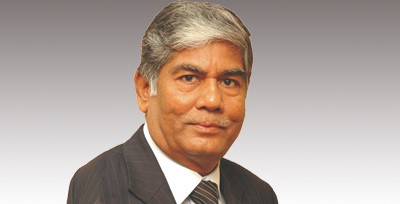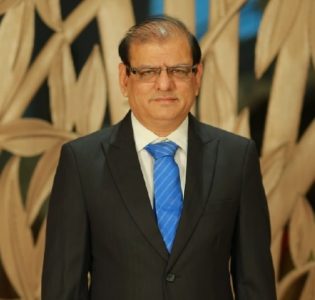All India Association of Industries (AIAI) and MVIRDC World Trade Center Mumbai had welcomed the announcements from the Union Finance Minister to thrust on futuristic sectors such as circular economy, green energy, digital banking, and digital currency.
The government has rightly increased capital investment to Rs. 7.5 lakh crore for the next year from around Rs.6 lakh crore in the current year will have a multiplier effect on the economy.
Dr. Vijay Kalantri, President, All India Association of Industries, Chairman, MVIRDC World Trade Center Mumbai, shared his views on the Union Budget 2022-23. He said, “The government has rightly allocated the increase in tax revenues to the much-needed infrastructure sector, with special focus on transportation and transferring more resources to state governments.”
Specifically, Dr. Kalantri welcomed the increase in domestic procurement of defense equipment, the launch of sovereign green bonds, the introduction of e-passport, and support to GIFT city. Regarding the amendment in Customs tariff structure, Dr. Kalantri expressed hope that this will promote local manufacturing in the sectors where India has a competitive advantage. It will reduce import costs on raw materials & other manufacturing inputs. The continuation of low customs duty on steel scrap will ensure cheap availability of raw material for MSMEs, especially in the engineering sector, Dr. Kalantri added.
“We welcome the increase in allocation for the Emergency Credit Line Guarantee Scheme to provide fresh loans to MSMEs. At the same time, we wish to point out that only borrowers with a sound repayment record could access fresh funds under this scheme. MSMEs who are struggling to repay loans because of poor economic conditions are unable to benefit from this scheme. Therefore, the government could provide incentives such as subsidies on raw material cost, temporary waiver of dues such as electricity charges, rent, loan interest cost, etc. to MSMEs,” he added.
India needs to expedite ongoing negotiation on comprehensive free trade agreements (FTAs) with countries such as the USA, European Union, and Canada to promote the exchange of capital, technology, and know-how. “We are confident that such agreements will provide preferential market access for Indian exporters in advanced markets on par with our competitors such as Vietnam and Bangladesh,” Dr. Kalantri opined.
The government may also upgrade testing and certification infrastructure and negotiate mutual recognition agreements with advanced countries to reduce the chances of rejection of Indian goods on technical grounds.













